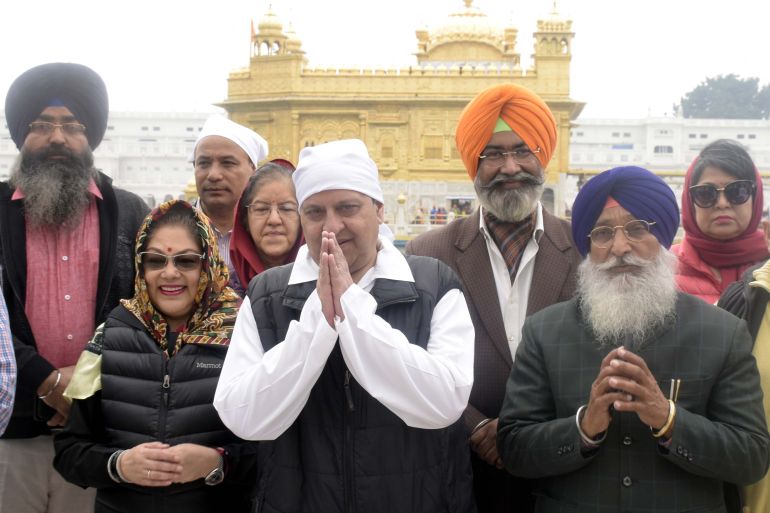Nepal ex-royals test COVID positive after India’s Hindu festival
Former King Gyanendra Bir Bikram Shah and Queen Komal Rajya Laxmi Devi Shah test positive after attending Kumbh Mela.

Nepal’s former king and queen have tested positive for COVID-19 on their return from a religious festival in India attended by millions of Hindu pilgrims.
Former King Gyanendra Bir Bikram Shah, 73, and his Queen Komal Rajya Laxmi Devi Shah, 70, returned to Kathmandu on Sunday after a week-long visit to India to celebrate Kumbh Mela or the pitcher festival.
Keep reading
list of 4 itemsClimbers to return to Mount Everest after Nepal’s COVID closure
Nepal’s governing communist party ‘dismissed’ from poll register
Nepal gov’t signs peace accord with banned Maoist splinter group
Shah’s press secretary Phani Raj Pathak confirmed the couple had tested positive for coronavirus.
“They are in self-isolation at Nirmal Niwas,” he said in a statement on Tuesday evening, referring to their residence.
Kumbh Mela, held in Uttarakhand state’s Haridwar city in northern India, attracts enormous crowds of Hindu devotees to take a ritual dip in the Ganges river.
Pressure has grown to halt the festival, which has drawn as many as 25 million people since January, as India struggles to curb its raging coronavirus outbreak.
Health experts had warned it could turn into a “super-spreader” event as pilgrims who have mostly ignored official advice to maintain social distancing, return to their towns and villages all across India and abroad.
A Hindu seer who attended the festival died from coronavirus and hundreds of attendees tested positive, forcing Indian Prime Minister Narendra Modi to request religious leaders to celebrate the festival in spirit.
Shah, the last king of Nepal, was crowned in 2001 after his elder brother Birendra Bir Bikram Shah and his family were killed in a mass killing that wiped out most of the royal family.
He stepped down from the throne in June 2008 after parliament voted to abolish Nepal’s 240-year-old Hindu monarchy, transforming the country into a secular republic.